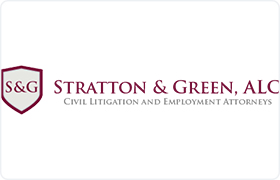Pinon Hills Bankruptcy & Debt Lawyer, California
Sponsored Law Firm
-
 x
x

Click For More Info:
-
Stratton & Green, ALC
3703 Camino Del Rio S Suite 100B San Diego, CA 92108» view mapBankruptcy & Debt Law Exceptional Advocates.
Stratton & Green is proud to serve as a modern advocate, in that it takes an innovative approach by not only litigating cases through trial but whenever possible.
800-803-3091
Mona Patel
Estate, Family Law, Bankruptcy & Debt, Personal Injury
Status: In Good Standing Licensed: 15 Years
Robert W. Ripley
Workers' Compensation, Family Law, Bankruptcy, Personal Injury
Status: In Good Standing
Robert Ripley
Bankruptcy, Transportation & Shipping, Traffic, Workers' Compensation
Status: In Good Standing Licensed: 53 Years
Stephanie Roberts Stjohn
Real Estate, Divorce & Family Law, Bankruptcy, Bankruptcy & Debt
Status: In Good Standing Licensed: 28 Years
Gregory Scott Bonner
Wills, Trusts, Family Law, Bankruptcy
Status: In Good Standing Licensed: 12 Years
Gregory Scott Bonner
Wills, Trusts, Family Law, Bankruptcy & Debt
Status: In Good Standing Licensed: 12 Years
 Sabrina Green San Diego, CA
Sabrina Green San Diego, CA Practice AreasExpertise
Practice AreasExpertise
